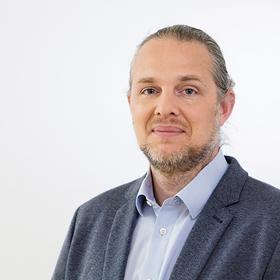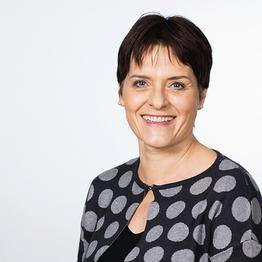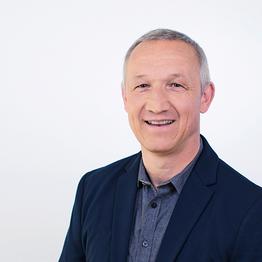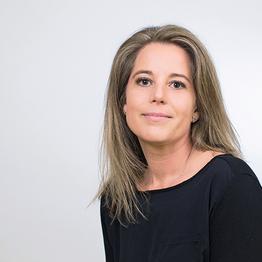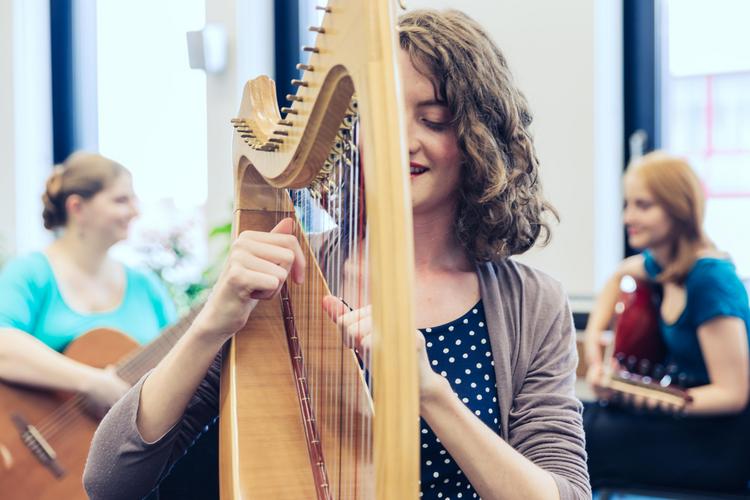
Improve people’s health using targeted musical interventions. The Music Therapy bachelor programme at IMC Krems will equip you with the fundamental expertise you require.
You will learn about the targeted implementation of key evidence-based music therapy techniques and methods used to treat clients within a therapeutic relationship. After completing the 3-year programme, you will be qualified to assume joint responsibility for the treatment of your clients.
Degree
Bachelor of Science in Health Studies
Organisational form
part-time / 6 semesters / 180 ECTS
Language
German
Study fee
363.36 EUR
Important dates
Admission days
- 15.05.2025
- 22.05.2025
A formula for success: theoretical knowledge + practical experience
The programme is built on three pillars.
Semesters 1–6
Teaching
Fundamental theories and concepts of music therapy are taught throughout the programme. You will also acquire basic medical and psychological knowledge.
You will have the opportunity to improve your performance skills on several instruments, as well as other musical skills which are important in music therapy. Self-experience and practical exercises will help to enhance your understanding of the mechanisms by which music therapy works. Courses addressing music-theory, legal and ethical questions and topics round out the comprehensive curriculum.
Semesters 1–6
Research
Building on the critical discussion of insights from the academic theory courses at the beginning of the programme, you will be introduced to the fundamentals of academic research methods, as well as the various academic traditions in the field of action research.
There is a special focus on French action research, which adopts a very practical approach and is concerned with solving problems in the field – rather than testing out hypotheses – and linking research with practice.
The objective is to enable you to critically reflect on and develop your music therapy practice in the course of writing a bachelor paper. Students’ “reflective autobiographies” also play an important role here, and are expressly incorporated into the research and discovery process. In a reflective autobiography, you critically examine your own practice based on a range of empirical data, which you systematically evaluate using established qualitative methods.
Semesters 3–6
Practice
The programme’s compulsory clinical practice placements, which start in semester 3, give you experience of working in a range of fields such as neurology, neonatology and palliative care.
Initially acting in an observational capacity, you will progress to the role of co-therapist and work alongside the other healthcare professionals who are involved in the care of your clients. Eventually, you will be in a position to treat your own clients under the supervision of a fully-qualified music therapist. In this way, you are gradually introduced to clinical work and learn to adopt a person-centred approach as part of an interdisciplinary team.


